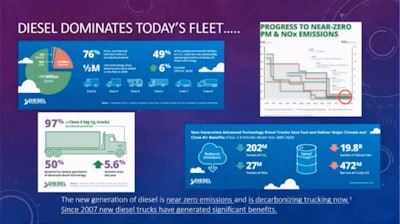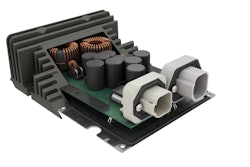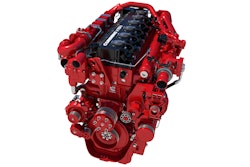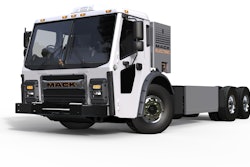 Allen Schaeffer, Executive Director at the Diesel Technology Forum, shared this slide as part of a recently staged debate among advocates, respectively, for diesel, battery-electric, and hydrogen-electric powertrains to dominate new truck sales in 2030.
Allen Schaeffer, Executive Director at the Diesel Technology Forum, shared this slide as part of a recently staged debate among advocates, respectively, for diesel, battery-electric, and hydrogen-electric powertrains to dominate new truck sales in 2030.
In the not-so-distant future world of 2030, what will power the plurality of new Class 8 trucks sold in the U.S.?
The answer, according to a Mobility Impact Partners debate held Wednesday last week, is definitely diesel, and nobody – not even advocates for battery and fuel cell technologies – made serious counter-arguments against that reality.
"Even with some of the direct policy interventions that have been taking place, in California particularly with their advanced clean truck rule, in 2035 only 40% of Class 8 tractors must be sold as zero-emissions vehicles," said Allen Schaeffer, Executive Director at the Diesel Technology Forum. "So that means 60% are still going to be diesel in California, which is leading the policy space here."
Schaeffer, the diesel advocate among three debaters assembled for the discussion, easily asserted in his opening statement that diesel powertrains are the most available and best performing among other technologies, that their increased efficiency over the last two decades has been equivalent to removing 43 million cars from the road, and that it's prohibitively expensive to create new infrastructure for new fuel types. The trucking industry, he said, thus simply demands more diesel trucks as time goes on.
All of this while diesel engines have reached "near zero" emissions on particulate matter and NOx, making them the clear choice for the future of freight, according to Schaeffer.
But while nobody effectively argued against diesel domination of trucking for now, the other debaters did make an extreme case for upsetting the status quo.










